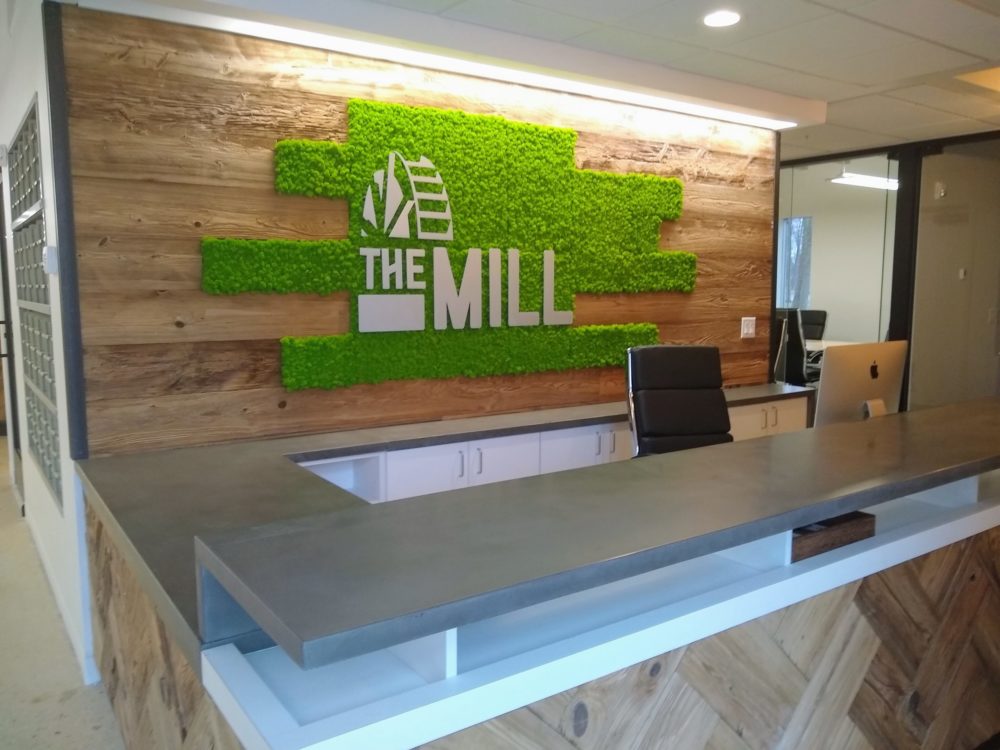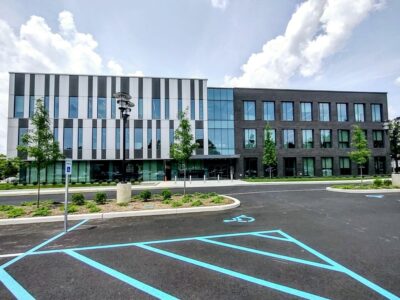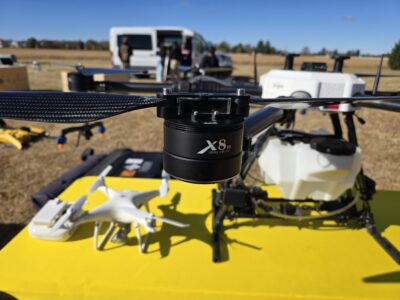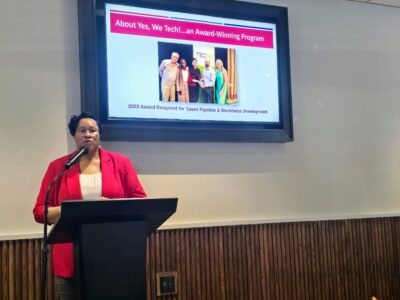The COVID-19 pandemic has accelerated predictions that coworking spaces are a dying office model. But Robert Herrera, founder of The Mill, with its two locations in downtown Wilmington and Concord Plaza, is still confident that coworking spaces have a viable future.
“I’m involved in a couple of different businesses and each one has had a different impact,” said Herrera. “But with coworking in particular, which is my forte, we keep saying internally that no matter what we’re coming back, no mater what we’re going to be stronger.”
Though the two Mill locations are virtually empty since Delawareans were ordered to stay at home on March 23, they haven’t shut down entirely. A few members are essential workers who are able to work in their offices while maintaining social distancing.
Most members, by far, are now working from home, but they still receive virtual office services — things like mail services, where the office mail they receive at The Mill is photographed for review via email and opened and scanned by request, as well as courier service to deliver mail that can’t be scanned, such as checks.
“During the first weeks weeks of the shutdown, it was confusing,” Herrera said. “We were watching what assistance was going to be out there, how do we handle it. Then, in weeks three and four, we started pivoting to finding ways to offer value to our members, and mail services was part of that. So we doubled down and focused on that. Now in weeks five, six and seven, we’re looking ahead to reopening.”
Herrera, along with Director of Operations Rebecca Parsons and Community Manager Andrew Larason, decided to make the most of the empty space to work on some Wilmington renovations, including repainting three of the conference rooms (each taking one room to maintain social distancing) and installing acoustic panels in conference rooms and phone booths.
“Right before this, we were pretty packed with conference room [meetings] and events, and didn’t know when we’d be able to take the conference rooms offline to revamp them,” he said. “So we said, what are the upgrades that we’ve been dying to do but couldn’t do?”
At The Mill Concord, which only recently opened after extensive renovations of its 1980s-era office park building, Herrera focused on the outside, with an Earth Day planting around the pergola with his twin daughters.
“I think our members will appreciate it,” he said. “When they come back, it’s going to feel like coming back to a brand-new setup.”
A full reopening, when it comes, will be gradual: “It won’t be like, ‘We’re back open, come and party with us,'” said Herrera. “It will be a slow phase-in.”
How, exactly, the gradual reopening will look is currently in the planning stage.
“We’re taking things day by day, like everyone else,” he said, acknowledging that state recommendations and guidelines change regularly.
A likely scenario at the beginning of the phase-in is that members who rent the small, glass-encased offices will be allowed to return, as long as only one person at a time is in the office. Larger offices will have social distancing requirements, and the communal space — the part of the coworking model most at risk at this time — will be retooled.
“We’re going to take some bar stools out to Concord so that there’s not enough for people to sit close to each other,” Herrera said. “We probably won’t allow access to our pantry area for several reasons, probably won’t be serving coffee.”
The team will also start using a temperature tracking currently in development by Sury Gupta and James Massaquoi, founders of 360VR Technology. Members and guests will be required to have a body temperature check before entering one of the spaces, and administrators will be able to alert members of possible exposure risk if someone starts showing symptoms.
“We’re a nimble young company,” Herrera said. “We’re able to adapt and change, and that’s just what we’re going to have to do with this.”

This editorial article is a part of Technical.ly's Community Building Month of our editorial calendar.
Before you go...
Please consider supporting Technical.ly to keep our independent journalism strong. Unlike most business-focused media outlets, we don’t have a paywall. Instead, we count on your personal and organizational support.
3 ways to support our work:- Contribute to the Journalism Fund. Charitable giving ensures our information remains free and accessible for residents to discover workforce programs and entrepreneurship pathways. This includes philanthropic grants and individual tax-deductible donations from readers like you.
- Use our Preferred Partners. Our directory of vetted providers offers high-quality recommendations for services our readers need, and each referral supports our journalism.
- Use our services. If you need entrepreneurs and tech leaders to buy your services, are seeking technologists to hire or want more professionals to know about your ecosystem, Technical.ly has the biggest and most engaged audience in the mid-Atlantic. We help companies tell their stories and answer big questions to meet and serve our community.
Join our growing Slack community
Join 5,000 tech professionals and entrepreneurs in our community Slack today!






